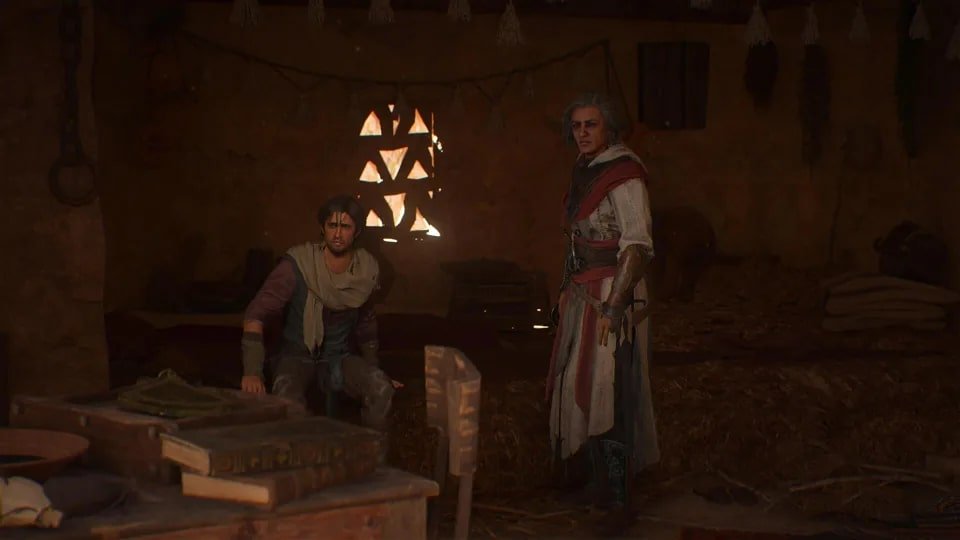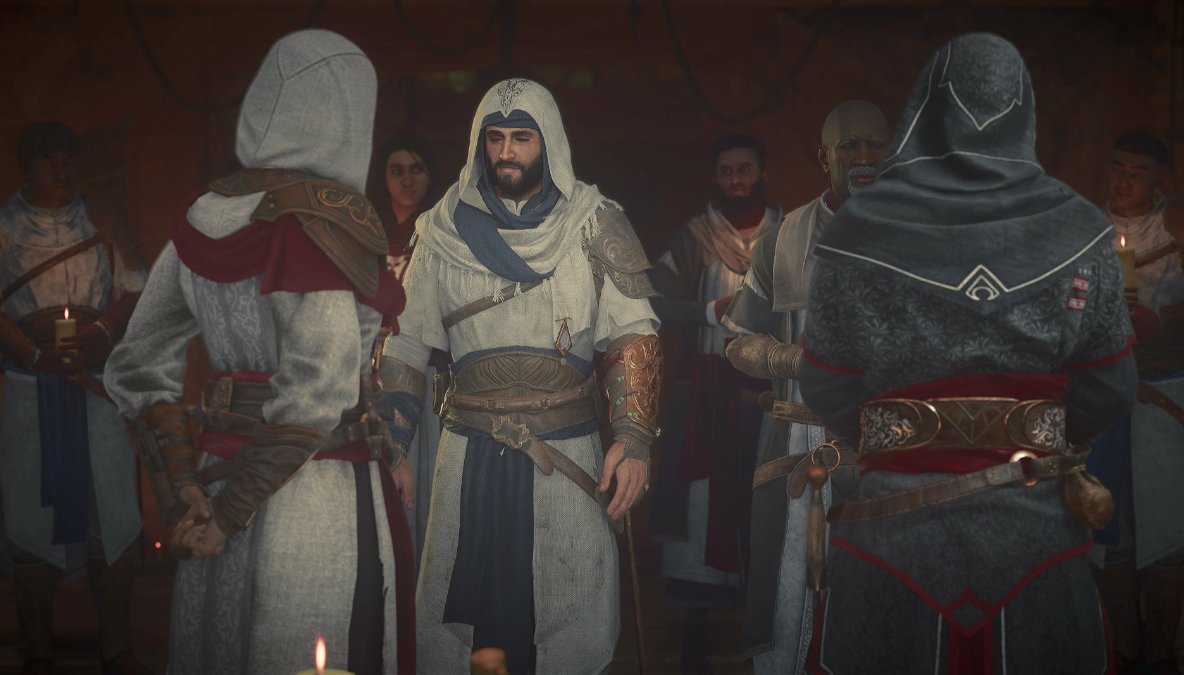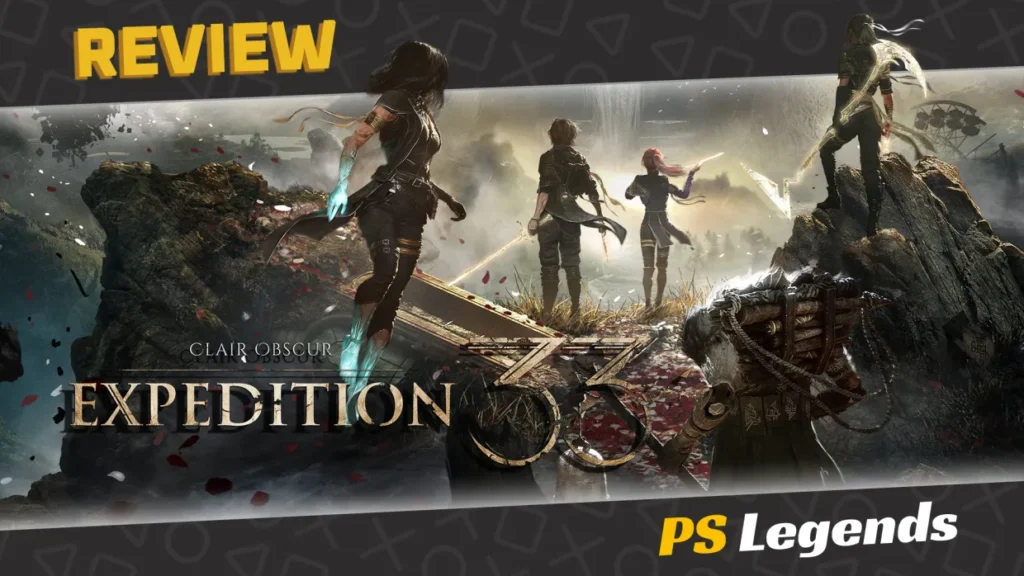After leaning into the open-world RPG genre with the last few entries, Assassin’s Creed is ready to go back to its roots, at least for the time being, with the release of Assassin’s Creed: Mirage. While some fans were rooting for a comeback of stealth mechanics in the franchise, is this what the series needed? Let’s find out.
On This Page
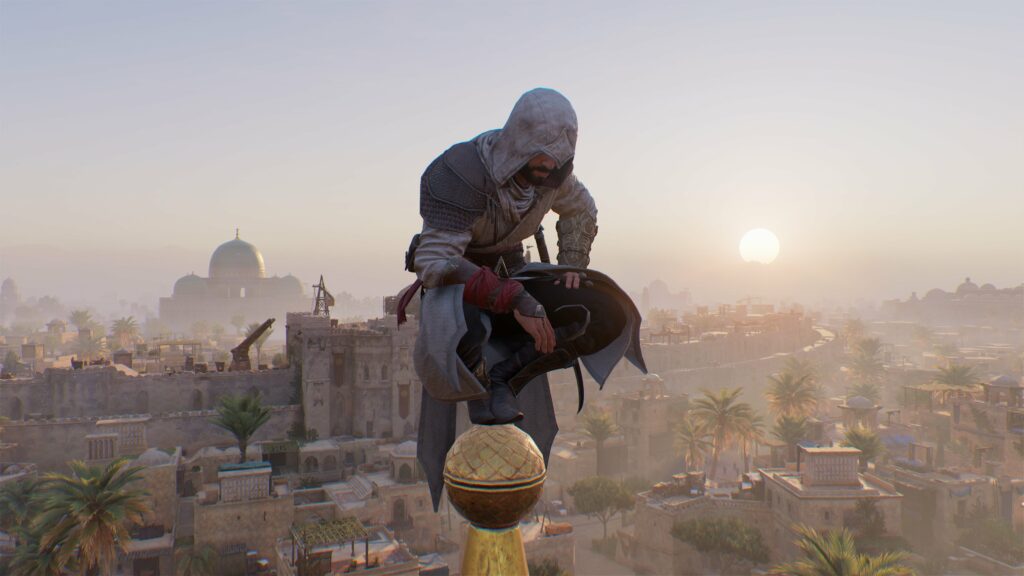
Introduction
Assassin’s Creed: Mirage is the thirteenth main installment in the long-running Assassin’s Creed franchise, and it’s the first game to depart from the open-world RPG formula introduced by Assassin’s Creed: Origins back in 2017. Ubisoft announced the game as a smaller-scale project, intended to bring the series back to its stealth-oriented roots, much to the joy of those fans who didn’t like the series’ shift in direction and focus. While the intention may sound good on paper, the game still has a lot to prove, given that this formula was already considered stale in 2015. The question is: does this formula still work in 2023? Does Assassin’s Creed: Mirage make it any better?
Story
Assassin’s Creed: Mirage is set twenty years before the events of Assassin’s Creed: Valhalla. Players take the role of Basim Ibn Ishaq, who appeared in Valhalla as a side character. The game acts as a sort of origin story for Basim. This version of the character is younger and more immature than the Basim we’ve known in the past. Here, Basim is still a young and foolish thief with a big heart, who dreams of joining a mysterious group that calls themselves Hidden Ones, which players already know as precursors to the Assassins.
Despite warnings from his childhood best friend, Basim tries to catch the group’s attention, but this ends up bringing death and destruction to all those who are close to Basim. We won’t spoil what exactly happens, but after Basim barely escapes death, he’s finally recruited by the Hidden Ones, under the protective wing of the mysterious Roshan.
While the plot threads similar ground to other games in the franchise, it still manages to deliver an engaging and satisfying experience, also thanks to the fact that the game is much more linear and narrative-focused than recent entries. The story isn’t padded over a 60-hour-long adventure, and this helps a lot keeping the player invested in what’s happening.
The only major complaint we have is about antagonists. The game is seriously lacking in charismatic enemies, and most people Basim will set out to kill are just generic “bad guys”, adding very little to the plot. To be honest, this is something the series has (almost) always struggled with, even in its glory days. Other than that, the game narrative delivers a satisfying experience, especially if you love historical fiction.
Gameplay
Assassin’s Creed Mirage plays and feels like an early-day Assassin’s Creed, using the same formula we’ve seen in the franchise up until the release of Assassin’s Creed: Origins.
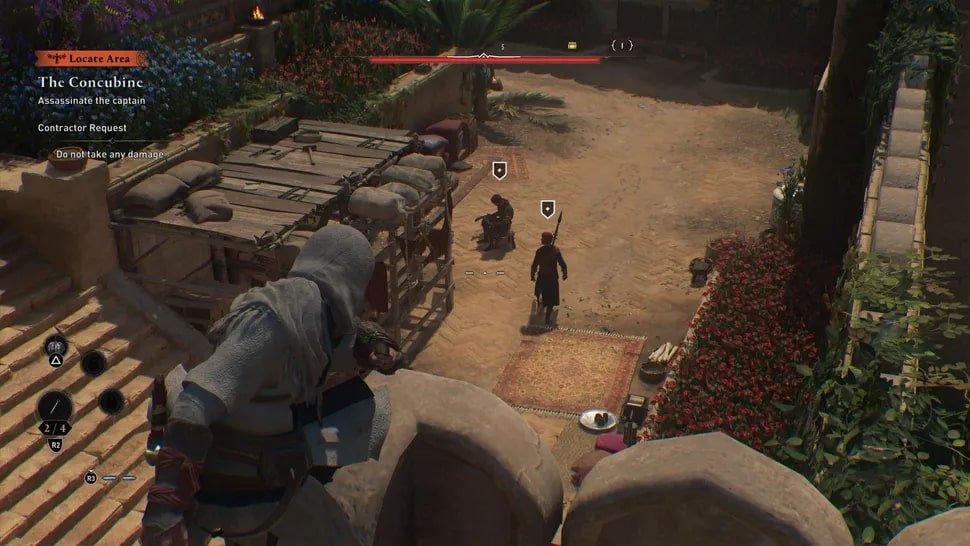
The game is very focused on stealth and parkour and gone are the never-ending skill trees we’ve seen in recent entries. On one hand, this is a welcomed change in pace. Killing dozens of enemies without being spotted is incredibly satisfying, and given the lack of proper competition in this market, Assassin’s Creed: Mirage delivers something pretty unique in today’s gaming landscape.
Secondary weapons are also back, and you’ll end up using old friends like tranquilizer darts, throwing knives, smoke bombs, and more. You will have to carefully plan out your moves, and there won’t be any level gap that prevents you from killing a though enemy.
If this sounds like your cup of tea, you will have a great time with Assassin’s Creed: Mirage, because the game succeeds in bringing back the franchise’s great stealth action.
The problem is that the game brings back all the classic formula’s flaws as well. For starters, enemy AI is inconsistent at best: sometimes, enemies will manage to pose a good amount of challenge, but most of the time you will be able to knock them out without a sweat. And even when you’re spotted and there are too many enemies to fight, you can just get out of their field of view, and they will soon forget about your very existence.
There’s little else to say because Assassin’s Creed: Mirage doesn’t bring much new to the table. If you’ve played any game in between Assassin’s Creed II and Assassin’s Creed: Syndicate, you know exactly what to expect from this adventure. Sure, there are cues taken from the most recent entries, but the bulk of the game is exactly as we left it in 2015.
However, all things considered, Assassin’s Creed: Mirage is still a good change of pace for the series. Harking back to the original formula helps the game stick out in a gaming market that’s crowded with open-world RPGs, and the historical setting is accurate enough to please every fan of this genre.
The problem is that, while the old formula is still working, it desperately needs a modern twist. Instead of trying to evolve its core concept, Ubisoft seems only concerned with pleasing the old fans with a simple side-project that’s meant to be just a celebration of what the franchise once was. While that may be enough for some fans, it surely won’t make happy those who were eagerly waiting for a great comeback of the old formula, neither will it help win back those who grew tired of the old games and preferred the franchise’s second era.
Graphics/Sound
Assassin’s Creed: Mirage feels like a little step back from Assassin’s Creed: Valhalla in the visual department, which isn’t all that surprising, considering that the game is being released for a budget price. While Baghdad is surely beautiful to look at, character models and animations are far from being top-notch, even on PlayStation 5.
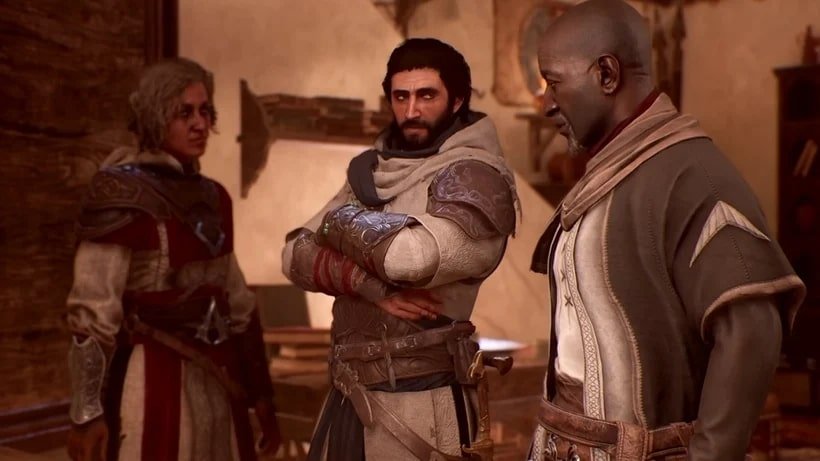
The worst thing about visuals is possibly the assets’ recycling, which is pretty evident already just a few hours into the game. This was unexpected: given the game’s map is much smaller in scope than what we’ve seen in recent entries, we weren’t expecting such a heavy reliance on the same assets. It’s not a deal-breaker flaw, but it’s definitely noticeable.
On the bright side, the game runs pretty smoothly, and the frame rate rarely drops even if you choose to play at 60 fps.
As for the sound, the game has a good OST and stellar performances from the cast, both of which help the adventure feel much more engaging and immersive.
Replayability
Beating the main adventure will probably take you around 20 hours, more or less, depending on how much you decide to explore on your first run. While there’s no reason at all to go through a second run, there’s still plenty of side-content you can delve into, which mostly consists of side-quests and collectibles. It’s nothing to write home about, and you won’t be missing much if you just complete the main game and call it a day, but if you love the game’s gorgeous setting, you’ll probably end up doing some more stuff just for the sake of spending some more time in Baghdad.
Joys
- The old Assassin’s Creed formula is back…
- Engaging, focused narrative
Cons
- … but so are its flaws
- It feels like a step back on the technical side
